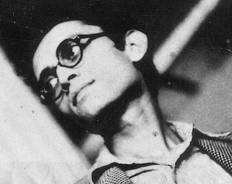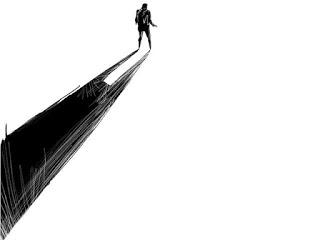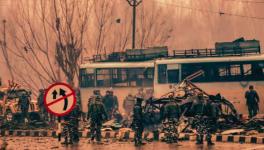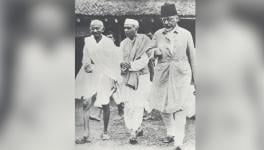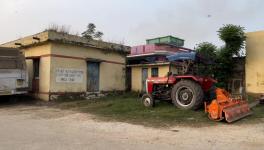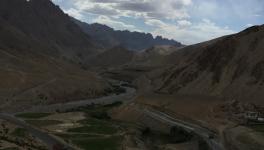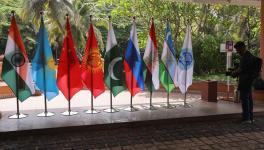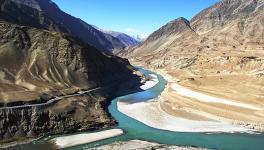Manto lives! Reading Toba Tek Singh in 2012
Manto wrote the history that was being made around him. He wrote about a history being unleashed on a subcontinent that cracked and shifted till hatred congealed into a chronic state of suspicion between two new “free” nations.
In a writer’s world, history is not abstract or official. It lives. It takes on the shape and skin of people, their unofficial and unheard thoughts, fears, hopes. History is in the girl who is raped so often she pulls down her salwar and spreads her legs like a zombie even though it is her distraught father who has come to see her. In the man who realises, but only after he has committed murder, that he has made a “mishtake” because his victim belongs to his own community. In the mad man Toba Tek Singh who prefers to die in no man’s land to living in a country where borders can spring up overnight.
The short story Toba Tek Singh is, arguably, Manto’s masterpiece. The story speaks to us like today’s news, its pain and truth not blunted by the years. Toba Tek Singh is set two or three years after partition; it was first published in 1955. But all these years later, Toba Tek Singh, like his creator, lives. If he stood at Wagah Border today, between the gates of India and Pakistan, we would understand every mad word he says.
When fiction writes history, literature becomes a unique source of historical data. Fiction records violence; but it also hints at the unnamed and often unnameable guilt and shame of it all. It does more. In its human embodiments of history, it considers the possibility – and the impossibility – of coming to terms with partition, borders, lines, parameters, maps, insiders, outsiders, us and them.
The story Toba Tek Singh first does this by insisting that places have to be named. Names explain places, what they are and how they came to be. And a new place that suddenly unfolds before you so your next step may take you into it has to be named. How else will you begin to know it? Writing and naming the upheaval of nation-splitting and nation-making involves the anxiety and pain of naming places that were other places till yesterday. The lunatics in the asylum Toba Tek Singh lives in are confronted with the bewildering but inescapable question: What is Pakistan? “One Muslim lunatic, a regular reader of the fire-eating daily newspaper Zamindar, when asked what Pakistan was, replied after deep reflection: ‘The name of the place in India where cut-throat razors are manufactured.’ “ His answer may still need to be decoded on both sides of the border.
www.youtube.com
Then the new place with a new name has to be located. But the question ‘where is Pakistan located?’ only dislocates Toba Tek Singh and his fellow inmates. First, they are subject to a literal dislocation; then it is a dislocation of an essential sense of belonging:
If they were in India, where on earth was Pakistan? And if they were in Pakistan, then how come that until only the other day it was India?
…Sialkot, which used to be in India, was now in Pakistan. …Lahore, which was currently in Pakistan, …could slide into India any moment. It was also possible that the entire subcontinent of India might become Pakistan. And who could say if both India and Pakistan might not entirely vanish from the map of the world one day?
Quite rightly, one lunatic climbs a tree and says he does not want to live in either India or Pakistan but in that tree.
The hero of the story is an unlikely hero called Bishan Singh. But the times are so uncertain that even the names of people don’t stay fixed. Bishan Singh comes to be known by a name that leaps from the metaphor of naming places in times of violent change to that of naming people in the throes of dislocation. Bishan Singh is called Toba Tek Singh, the name of the village he comes from; a village significant only because no one is quite sure where it is – in India or Pakistan.
The narrative moves on from names – a word or two – to a whole sentence, a paragraph, a language. What language can express the madness of borders becoming more important than people? Of borders taking over people’s homes, families, past and future? Toba Tek Singh speaks in variations of a secret formula: “Uper the gur gur the annexe the be dhyana the mung the dal of the Pakistan and Hindustan dur fittey moun.” His “nonsense language” articulates the essential madness, the incomprehensibility, of what he is living through.
(If we could become flies on the wall during one of those “talks” between India and Pakistan, we would probably hear Toba Tek Singh’s language again. Comprehensible conversations take place between people. Only talks, alas, happen between governments. )
Confusion, uncertainty, hatred – all three hang poisonously in the air in Manto’s story. There is also a sharp little hint of a perverted nationalism that turns the call of the freedom movement, patriotism, into jingoism. Manto would probably expand on this theme if he were with us today. But even then, he knew that an exclusionary nationalism was best relegated to the lunatic asylum. “One day a Muslim lunatic, while taking his bath, raised the slogan ‘Pakistan Zindabad’ with such enthusiasm that he lost his footing and was later found lying on the floor unconscious.”
But the sane inmates (and most of the outside world) are spared this sort of accident. “Not all inmates were mad. Some were perfectly normal, except that they were murderers… They probably had a vague idea why India was being divided and what Pakistan was, but, as for the present situation, they were equally clueless.” Bishan Singh asks a guard, “Where is Toba Tek Singh?” The guard says “…where it has always been.” Bishan Singh persists: “But in India or Pakistan?” The sane guard knows as little as Bishan Singh. “In India… no, in Pakistan.”
Finally, when the exchange of lunatics takes place at the border, Toba Tek Singh is pushed and pulled by the border guards. But Toba Tek Singh refuses to move. They give up; he is “only a harmless old man.” Left there overnight, this pathetic old man stands in “no man’s land on his swollen legs like a colossus.” Toba Tek Singh grows, through the long night, into the wounded but still standing figure of humanity. And when he collapses in the morning, “There, behind barbed wire, on one side, lay India and behind more barbed wire, on the other side, lay Pakistan. In between, on a bit of earth which had no name, lay Toba Tek Singh.”
If Saadat Hasan Manto could return to Wagah today, he would find that his dream of a subcontinent where people live as people, not members of a religion or caste, remains a dream still. He may recall Faiz’s words: This mottled dawn / This night-bitten morning / No, this is not the morning /We had set out in search of. Or he may wake up Toba Tek Singh, help him stand on no man’s land again.
Get the latest reports & analysis with people's perspective on Protests, movements & deep analytical videos, discussions of the current affairs in your Telegram app. Subscribe to NewsClick's Telegram channel & get Real-Time updates on stories, as they get published on our website.









